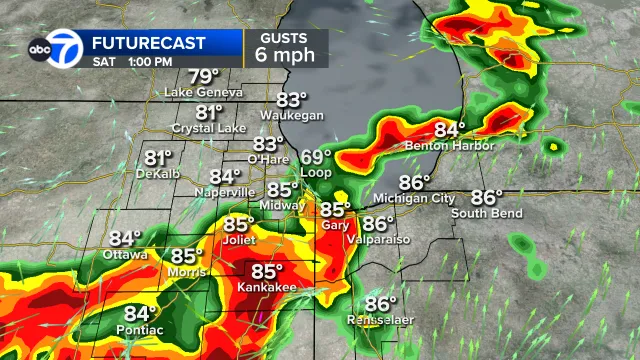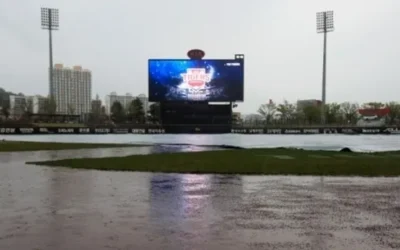Chicago Braces for Severe Weather
As Chicagoans wake up Saturday morning, a weather alert from AccuWeather looms large, signaling a heightened risk of severe storms across the Windy City. With over 40 million people across several states under similar alerts, the risk of damaging winds and flash floods cannot be ignored. This article aims to provide a comprehensive overview of the current weather situation in Chicago and the potential impacts on residents.
Understanding the Weather Alert
AccuWeather has issued alerts highlighting the possibility of strong to severe thunderstorms throughout the day today. Meteorologists are warning residents to be vigilant as the situation evolves, particularly as conditions can change rapidly. The forecast breakdown includes:
- Strong Winds: Sustained winds between 20 to 30 miles per hour with gusts potentially reaching up to 60 miles per hour are expected.
- Flash Flooding: With heavy downpours anticipated in a short time frame, urban areas could see flash floods, especially in areas with poor drainage.
- Severe Thunderstorms: There will be a risk of hail and frequent lightning, which can lead to dangerous outdoor conditions.
Historical Context: Chicago’s Severe Weather Patterns
Chicago is no stranger to severe weather, especially as the seasons transition from winter to spring. Historically, the Midwest experiences intense thunderstorms during this time, often signified by a rise in temperature and humidity. According to meteorological records, April and May are typically known to bring the highest incidence of severe weather in the region.
In recent years, Chicago has experienced an uptick in severe weather events, which has prompted increased diligence and advanced preparedness from city officials and emergency services. The city lacks the rolling hills that can sometimes diffuse incoming storm systems, making severe weather even more pronounced.
What Residents Should Do
For those living in Chicago and the surrounding areas, preparedness is key. Here are some suggested measures residents can take to stay safe during severe weather:
- Stay Updated: Monitor local news stations and weather apps to receive real-time updates on the storm’s trajectory and intensity.
- Emergency Kit: Assemble an emergency kit that includes essentials such as water, non-perishable food, a flashlight, batteries, and first aid supplies.
- Avoid Driving: If flash flooding occurs, avoid going out unless absolutely necessary. Roads can become impassable quickly.
- Seek Shelter: During severe thunderstorm warnings, find shelter indoors, away from windows, to avoid risks associated with flying debris and hail.
- Emergency Contact: Ensure that loved ones know your whereabouts, and have a communication plan ready in case of power outages.
The Broader Impacts of Severe Weather
Severe weather does not only pose immediate physical dangers; it has broader implications for the community at large. Recent studies have shown that severe weather can disrupt local economies, particularly when roads are blocked and businesses shut down due to flooding. This can result in lost wages for employees and decreased sales for local businesses.
Moreover, Chicago’s emergency response teams and healthcare facilities can become overwhelmed in the face of disasters. Infrastructure severely impacts a community’s ability to respond efficiently and effectively. In some instances, responses may be delayed due to hazardous conditions, resulting in dangerous situations for individuals requiring urgent services.
Community Response and Preparedness
Chicago’s city officials have focused efforts on community preparedness, aiming to mitigate the impact of severe storms through proactive planning and outreach. Programs such as storm preparedness workshops are designed to educate the public about emergency protocols and personal safety measures. In recent years, the city has improved its early warning systems, ensuring swift communication of potential emergencies.
Local organizations and non-profits also play a critical role in community preparedness, offering resources to give residents hands-on education about storm readiness. Libraries and community centers often serve as venues for distributing information and hosting events centered around disaster preparedness.
Conclusion: The Importance of Vigilance
With Chicago under a severe weather alert and a strong storm system potentially approaching, vigilance and preparedness are paramount. As residents brace for what could be a tumultuous day ahead, the advice remains the same: stay informed and be ready to take action. Prepare for the worst, but hope for the best. Together, communities can navigate through difficult weather conditions, ensuring the safety and resilience of the Windy City amidst changing skies.







